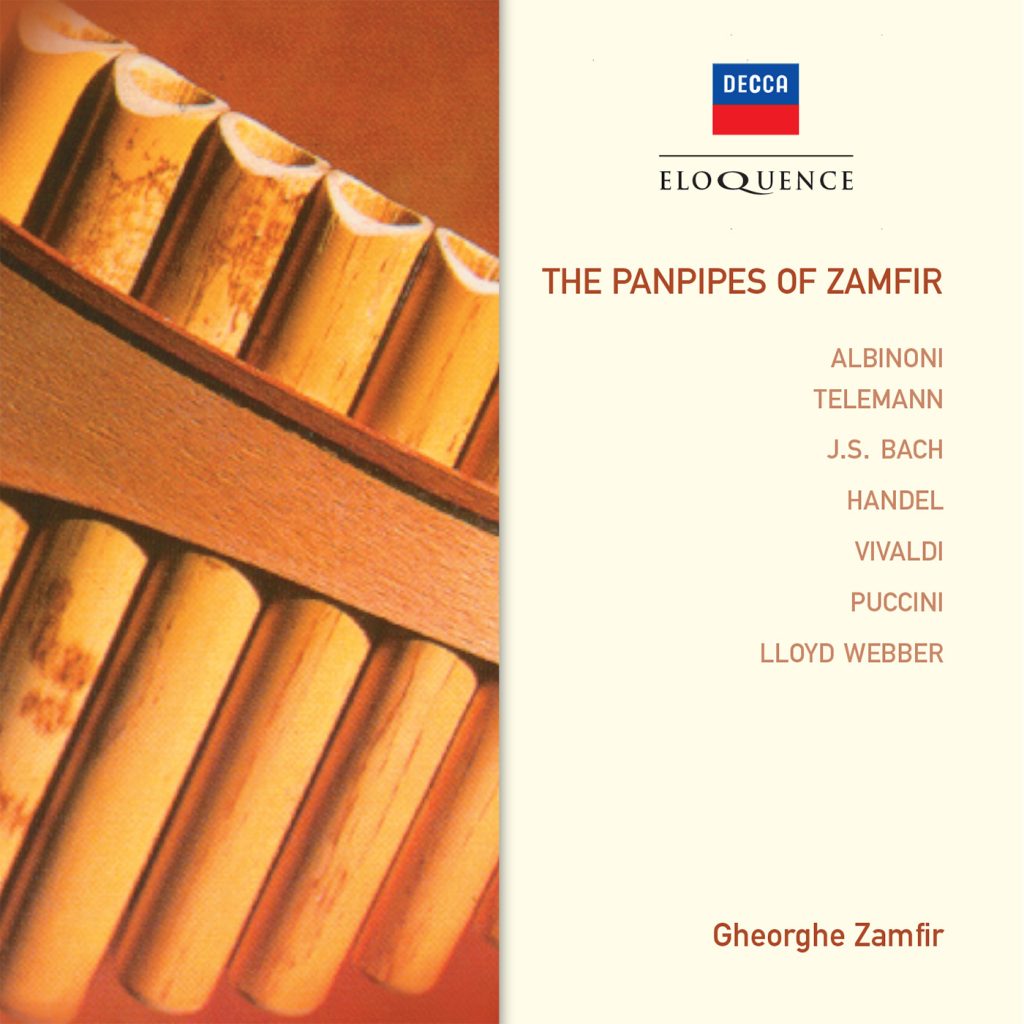
Being born in Romania and surrounded from childhood by folk melodies and fiery popular dance music certainly helps in forming an inspired musician, provided the talent is there. In the case of the exceptionally gifted Gheorghe Zamfir, who was born to a family of vine-growers in 1941 in Gaiesti near Bucharest, these fortunate circumstances led to his becoming the uncrowned ‘King of the Panpipes’.
Zamfir started his musical education on the accordion. Giving in to the 14-year-old Gheorghe’s pleas, his father had him enrolled at the Bucharest music school. As the accordion class had to be abolished, he was admitted to the panpipes class, at the time led by Fanica Luca, who discovered his pupil’s extraordinary talent. Once having mastered the instrument, Zamfir completed his primary education and entered the Bucharest conservatory, where he studied harmony, counterpoint and piano, graduating in 1966.
He then specialised in music education and began studying orchestral and choir direction, graduating in 1968. Concurrently with all this, he found time to take up serious singing. He joined the chorus of the conservatory and studied with Jean Banescu, the celebrated bass of the Bucharest opera.
Soon after leaving the conservatory he became conductor of Ciocîrla, the largest Rumanian folk ensemble ever (350 musicians). This company received the highest praise during its extremely successful travels around the world. For Zamfir it was a true musical laboratory. He composed and wrote orchestrations and on the technical side he revolutionised his instrument.
In 1970, Zamfir decided to return to a more authentic form of Rumanian ‘taraf’, a group of 3-8 musicians. A concert with this new set-up in Paris proved a revelation and the group subsequently gave more than 40 appearances in that city. Zamfir’s name soon became known throughout the world, and by the end of the 1970s his fame was established through his numerous recordings.
It is often hard to say whether he is a ‘popular’ or a ‘classical’ musician. This is demonstrated by the selection of classical and popular tunes which the King of the Panpipes plays on this CD, ranging from Baroque compositions to Lloyd-Webber’s musical ‘Evita’ from 1978.
TOMASO ALBINONI
Adagio (arr. Giazotto)
Orchester Harry van Hoof
LUDWIG VAN BEETHOVEN
Violin Romance No. 2 in F major, Op. 50
Orchester Harry van Hoof
GEORG PHILIPP TELEMANN
Concerto in A major for Panpipes & Orchestra: Sicilienne (arr. Jean Thilde Billandot, Paris)
English Chamber Orchestra
James Judd
JOHANN SEBASTIAN BACH
Concerto in D minor (BWV 1060) fOr Violin, Panflutes & Orchestra: Adagio
José Luis Garcia, violin
English Chamber Orchestra
James Judd
GEORGE FRIDERIC HANDEL
Ombra mai fu: Largo from Xerxes
Daniel Bish, organ
English Chamber Orchestra
James Judd
JEAN-BABTISTE LOEILLET
Concerto in D major for panpipes & orchestra
English Chamber Orchestra
James Judd
ANTONIO VIVALDI
Concerto Op. 8 No. 4 ‘Winter’ from The Four Seasons: Allegro
(arr. Harry van Hoof)
Orchester Harry van Hoof
ROBERT SCHUMANN
Träumerei from Kinderszenen (arr. Harry van Hoof)
Orchester Harry van Hoof
FRANZ SCHUBERT
Ave Maria (arr. Harry van Hoof)
Orchester Harry van Hoof
GIACOMO PUCCINI
O mio babbino caro from Gianni Schicchi
Prague National Theatre Orchestra
Petr Vronský
GUISEPPE VERDI
Addio del pasato from La Traviata
Prague National Theatre Orchestra
Petr Vronský
JOHANNES BRAHMS
Hungarian Dance No. 1 in G minor(arr. Tony Britten)
Studio Orchestra
Tony Britten
GIACOMO PUCCINI
Donna non vidi mai from Manon Lescaut
Prague National Theatre Orchestra
Petr Vronský
GHEORGHE ZAMFIR
1Couleurs d’automne
Monte Carlo Philharmonic Orchestra
Lawrence Foster
ANDREW LLOYD WEBBER
Don’t cry for me Argentina from Evita
